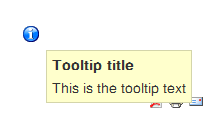প্রায় ছয় মাস হলো অফিসে যোগদানের পর থেকে জুমলাতে কাজ করছি। শুরু করেছি জুমলা ১.x.১২ দিয়ে আর এখন ১.৫.x এ কাজ করছি। ভাবছি আমার অভিজ্ঞতা নিয়ে এই পোস্টে নিয়মিত লিখবো।
প্রফেশনার কাজ করার জন্য নিশ্চয় ডাউনলোড করা টেমপ্লেট বা ফ্রি টেমপ্লেট দিয়ে কাজ হবে না। এই জন্য আপনাকে নিজে টেমপ্লেট বানিয়ে নিতে হবে। জুমলার ট্রিক্সগুলো এপ্লাই করতে হবে। জুমলার ব্যবহারের মানে হলো আপনাকে পিএইচপি কোডিং খুব বেশি জানতে হবে না, জানতে হবে না মাইএসকিউএল এর কাজ কারবার। তবে যদি জানেন তবে সেটা হবে আপনার জন্য প্লাস। কারন এর উপর নির্ভর করছে আপনি কতটা কাস্টমাইজ করতে পারবেন জুমলা। কারন জুমলা একটা সিএমএস হলেও এর রয়েছে নিজস্ব ফ্রেমওয়ার্ক। আপনি যদি নিজে এই ফ্রেমওয়ার্ক এক বার শিখে নিতে পারেন তাহলে অনেক সহজে ফুল কাস্টমাইজড সাইট বানিয়ে ফেলতে পারবেন জুমলা দিয়ে।
এখন কথা হচ্ছে কিভাবে শুরু করবেন তাইতো ? জুমলার সাইট থেকে জুমলা ডাউনলোড করুন। লোকালহোস্ট ইনস্টল করুন। ইনস্টল করার সময় স্যাম্পেল ডাটা ইনস্টল করুন। এতে প্রথম দর্শনে আপনার বুঝতে সুবিধা হবে। কিভাবে ইনস্টল করবেন তা নিয়ে আমি এখানে লিখছি না কারন এটা নিয়ে আলরেডি অন্য পোস্ট আছে।
জুমলার বেসিক নিয়ে কিছু আলোচনা করি আগে। জুমলা এতো বেশি ফ্লেস্কিবল যে আপনি কোন লাইভ সাইটেও অনালাইনে চাইলে নতুন কিছু যুক্ত করে দিতে পারবেন ধুম করে। ধরুন আপনার ক্লায়েন্ট হঠাৎ করে একদিন বললো তার মিডিয়া গ্যালারী চাই। আবার হোম পেজে এক পাশে একটা জায়গায় রিসেন্ট মিডিয়া ইনফরমেশন দেখাতে চাই। কোন চিন্তা নাই। জুমলার আছে একটা রিসোর্সফুল এক্সটেনশন ডিরেক্টরি। সেখান থেকে আপনি একাধিক মিডিয়া গ্যালারি যাচাই বাছাই করে কোন কম্পোনেন্ট ডাউনলোড করে নিতে পারেন। দেখবেন কিছু কিছু মিডিয়া গ্যালারীর সাথে মডুলস ও দেওয়া থাকে। হয়তো দেখা যাবে রিসেন্ট মিডিয়া দেখানোর মডুল সাথেই দিয়ে দিছে। তারমানে আপনি শুধু এই গুলো ইনস্টল করে লিঙ্ক করে দেবেনে মেনু থেকে আর কিছু সিএসএস এর কাজ যদি লাগে। আসলে জুমলার কাজে পিএইচপি বা মাইসিকিএলের জ্ঞানের চেয়ে সিএসএস এর জ্ঞান বেশি থাকা লাগে যা সাধারনত ওয়েব ডিজাইনার এর কাজ।
এই পর্যায়ে আমার আলোচনাগুলো যদি পড়তে পড়তে ঘুম চলে আসে তাহলে এখানে কিছুক্ষন পজ রেখে দিন এবং কিছু সময় পরে আবার দেখুন।
জুমলা ইনস্টল করলে দেখবেন বেশ কিছু ফোল্ডার ফাইল এই সব হাবিজাবি। আমাদের জন্য কিছু জিনিস দরকারী হবে সামনে যেমন-administrator, modules, components , plugins এবং administrator এর ভেতরের ( modules, components , plugins), templates (এটা খুব দরকারী প্রথম পর্যায়ে কারন এই খানে বেশ কিছু ছুরি কাঁচি চালাতে হবে আপনাকে যদি নিজের মতো করে টেমপ্লেট ডিজাইন করতে চান)।
ভালো কথা আমার আলোচনাগুলো হবে জুমলার লেটেস্ট ভার্সন বা জুমলা ১.৫.x সিরিজ নিয়ে কারন এখন এটা নিয়েই বেশি কাজ করে সবাই।
মডুল, কম্পোনেন্ট, প্লাগিনস ফ্রন্টএন্ড ও ব্যাকএন্ড দুই জায়গার জন্যই হতে পারে। মডুলের কাজ গুলো টেমপ্লেট এর কোন নির্দিষ্ট স্থানে কোন কিছু বিশেষ ভাবে দেখানো। দেখা যায় বেশির ভাগ মডুল কোন কম্পোনেন্টের সাথে রিলেটেড, নাও হতে পারে।যেমন ধরুন আপনার একটা ব্লগ সাইট আছে যেখানে অনেক পোস্ট হয়। আপনি চান রিসেন্ট পোস্টগুলো দেখাবেন। তাহলে দেখবেন আপনি জুমলার এক্সটেনশন ডিরেক্টরীতে রিসেন্ট কনটেন্ট আইটেম দেখানোর মতো কোন মডুল পাবেন। যেমন mod_dn. এটার কাজ হলো কোন সেকশন বা ক্যাটাগরী থেকে কন্টেন্ট আইটেম এর লিস্ট দেখানো। এখন এটা অনেক ভাবে হতে পারে যেমন র্যান্ডমলি, রিসেন্ট আগে, পুরানগুলো আগে বা ডেট অনুসারে ইত্যাদি বিভিন্ন রকম ভাবে পোস্ট বা কন্টেন্ট আইটেম এর লিস্ট আপনি দেখতে পারেন। এর জন্য আপনাকে কোডিং জানতে হবে না। এডমিন প্যানেল থেকে extention মেনু থেকে মডুলস এ যাবেন আর পজিশন(পজিশন জিনিসটা টেমপ্লেটের সাথে জড়িত, পরে আলোচনায় আসছি) অনুসারে মডুলটা খুঁজে বের করে সেটিংগুলো চেক করুন আর আপনার পছন্দের সেটিং সেট করুন। আর মডুলটা আপনার ইচ্ছা মতো টেমপ্লেটের কোন পজিশনে পাব্লিশ করুন। হয়ে গেলো। আর সেটিং চেক করার সময় আপনি কোন সেকশন বা ক্যাটাগর থেকে রিসেন্ট আইটেম দেখাবেন তার নাম অথবা আইডি দিয়ে দিন।
এখন আসি কম্পোনেন্ট এর কথায়। হাজার হাজার কম্পোনেট আপনি ফ্রি পাবেন জুমলার সাইটে। ধরুন আপনার সাইটের জন্য সাইটম্যাপ বানাবেন। চিন্তা নাই সাইট ম্যাপ বানানোর জন্য একাধিক চমৎকার কম্পোনেন্ট আছে-যেমন ধরুন xmap আমার কাছে বেশ ভালো লেগেছে। এডমিন প্যানেল থেকে component থেকে xmap এ যান আর বিভিন্ন রকম অপশন আছে তা নিয়ে খেলাধুলা করুন। চিন্তা নাই একটা একটা অপশন পরিবর্তন করে তা আবার ফ্রন্ট এন্ড থেকে দেখে নিন। আরে ভাই খেলতে খেলতেইতো শেখা হবে, তাই না ?
এখন আসি টেমপ্লেট বানানো নিয়ে। আমার কাছে ফ্রি টেমপ্লেট ভালো লাগে না। তবে নিজে নিজে টেমপ্লেট বানাতে হলে একজন ফটোশপ এক্সপার্ট অবশ্যই লাগবে না হলে আপনাকেই ইমেজ বানিয়ে নিতে হবে।কাস্টম টেমপ্লেট বানানোর জন্য কি করতে হবে?
মনে মনে আগে সিনারিও দাড় করান যে আপনার সাইটে কি কি থাকবে। মাথার ভেতর একটা লেয়াউট তৈরি করুন।
২। যা এতোক্ষন চিন্তা করলেই এখন সেইটা মাটিতে নামাতে হবে মানে নিজে নিজে অথবা কোন ডিজাইনারকে দিয়ে ফটোশপ বা ইমেজ এডিটিং টুল দিয়ে সেই লেয়াউটের ছবি তৈরি করুন।
৩। ডিজাইন শেষ হলে ইমেজ থেকে প্রয়োজনীয় স্লাইস বের করুন। যেমন কোন বাটনের ব্যাকগ্রাউন্ড ইমেজ লাগবে তা ঐ মেইন ডিজাইন থেকে দরকার মতো স্লাইস করে নিতে হবে। এখানে যেহেতু জুমলাতে কাজ করতে হলে জুমলার ট্রিক্স ছাড়া দরকার ভালো সিএসএস জ্ঞান।
৪। আশা করি ইমেজে আকারে একটা টেমপ্লেট বানিয়ে ফেলেছেন। এখন আমাদের কাজ হবে এইটাকে জুমলার টেমপ্লেট নিয়ে যাওয়া।


